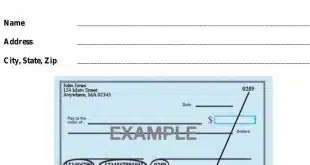Bank of America Corp.'s decision to stop offering overdraft protection on debit card transactions casts a spotlight on billions of dollars in fee revenue issuers earn from cardholders that could drain away if the bank's move becomes a trend. It could also be a harbinger of a move by consumers away from signature debit and toward PIN debit, observers say. BofA on Wednesday announced that starting this summer it will not authorize point-of-sale debit card transactions when there are insufficient funds in the linked account. The new policy replaces the current practice?commonplace in the banking industry?of going ahead with the transaction and then levying an overdraft fee against the accountholder. BofA's fee, which is $35, will still apply on ATM transactions if the cardholder agrees to the overdraft. The policy takes effect June 19 for new accounts and in mid-August for existing ones. In dropping its overdraft protection, BofA is going beyond the mandate of a new Federal Reserve rule that takes effect July 1 and requires banks to get debit card holders to opt-in to the protection before they can be charged for it. “I applaud [the move by BofA] and think it's terrific,” says Steve Mott, principal of BetterBuyDesign, a Stamford, Conn.-based payments consultancy. But at the same time banks have billions of dollars at stake in various fees related to debit card transactions against insufficient funds. If the move by BofA is copied by other banks, pressure could build in the industry to replace lost revenue by introducing other debit card fees, such as annual assessments, or by cutting related costs. Mott estimates banks earn roughly $8.5 billion annually on non-sufficient funds fees related to debit card transactions, or anywhere from 50% to 60% of the total revenue they take in on the product. Overall, estimates of total bank revenues from overdraft fees on all products range from $25 billion to $38 billion annually. Overdraft fees average $10 to $38, with a median fee of $27, according to a Federal Deposit Insurance Corp. study that compiled responses from 462 banks. The study found 81% of the banks allowed so-called automated overdrafts at ATMs and at point-of-sale locations with debit cards. Of these banks, 89% informed POS customers of the overdraft only after the transaction. Eight percent informing customers before the transaction could be completed, allowing them to cancel the purchase and avoid the fee. A BofA spokesman tells Digital Transactions News the bank is still gathering information on the probable revenue impact of the move. “We're going to give more detail in our [first-quarter] earnings call in April,” he says. He refuses to give a current count for the bank's debit cards in circulation, adding only that BofA has “the largest consumer debit business in the industry.” The extent to which other debit card issuers will mimic BofA's move is hard to gauge this early on. But the bank's size and competitive heft in the industry makes it likely its decision will pressure other banks to drop or rein in overdraft fees. Mott says BofA and other issuers have concluded that consumers, many of them whipped by the recession and strapped for funds, no longer want the protection at the cost it carries. “Consumers today are clearly willing to undergo the inconvenience of getting a decline at the point of sale,” he says. “People just don't want the extra surprise fees.” The BofA spokesman says the bank is responding to internal research indicating customers want more control over transactions. “Customer needs are changing and we're trying to change with them,” he says. If widely followed, the BofA decision could also lead to an even stronger consumer preference for PIN debit cards. Most debit card overdrafts occur with signature-debit cards, says Mott, who estimates only about 15% of PIN debit transactions “are susceptible” to non-sufficient funds cases because of the near real-time visibility electronic funds transfer networks have into consumer checking accounts. If declines for NSF are going to happen the same way with signature and PIN debit cards, consumers may begin using PIN debit cards for the added security of the PIN, Mott reasons. “The idea of the 'skip the PIN and win' marketing campaigns banks have waged in the past will be relegated to the trash heap of history,” he says.
Check Also
Nacha’s Top 50 Originators And Receivers Account for 94% of Payments Volume
The big automated clearing house network Nacha says the volume of ACH payments made at …







